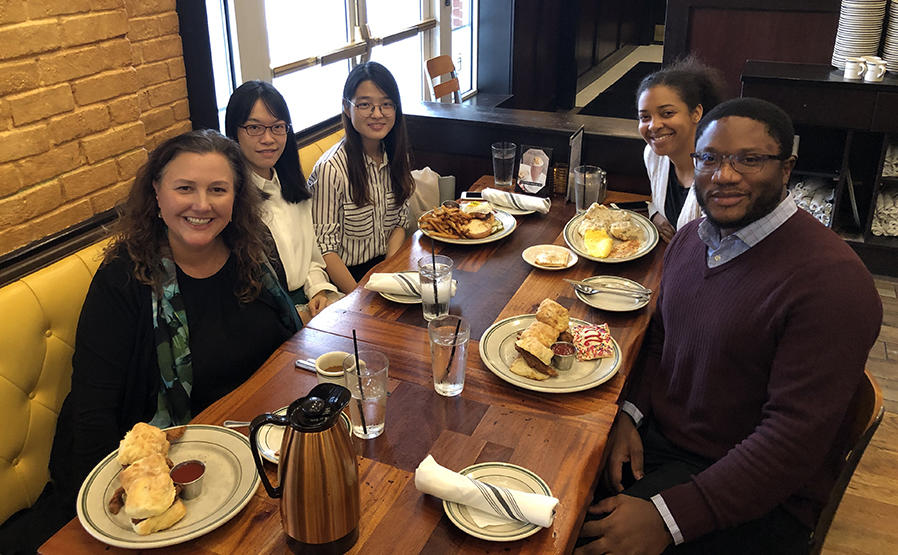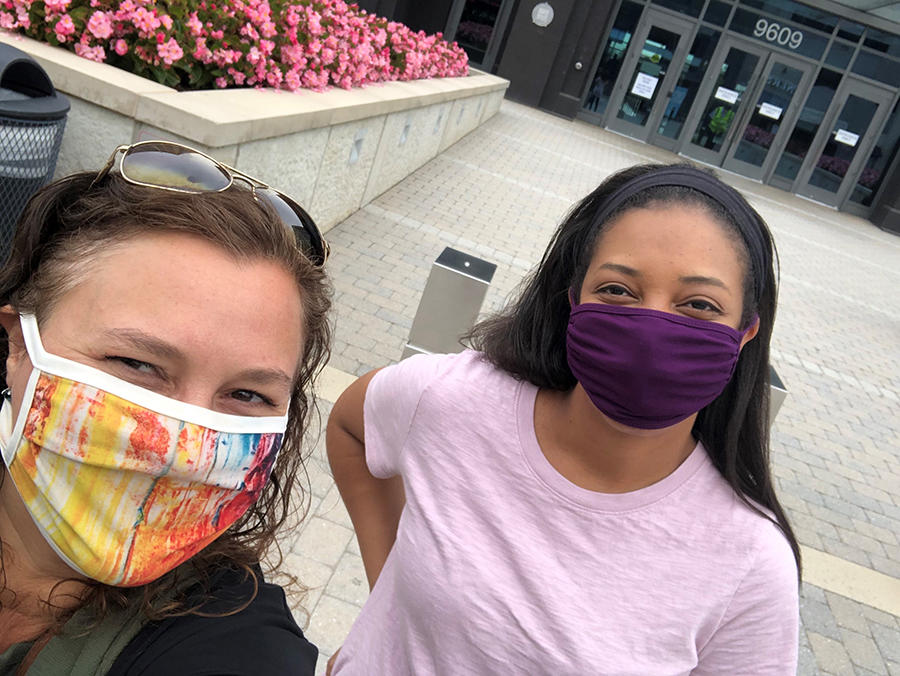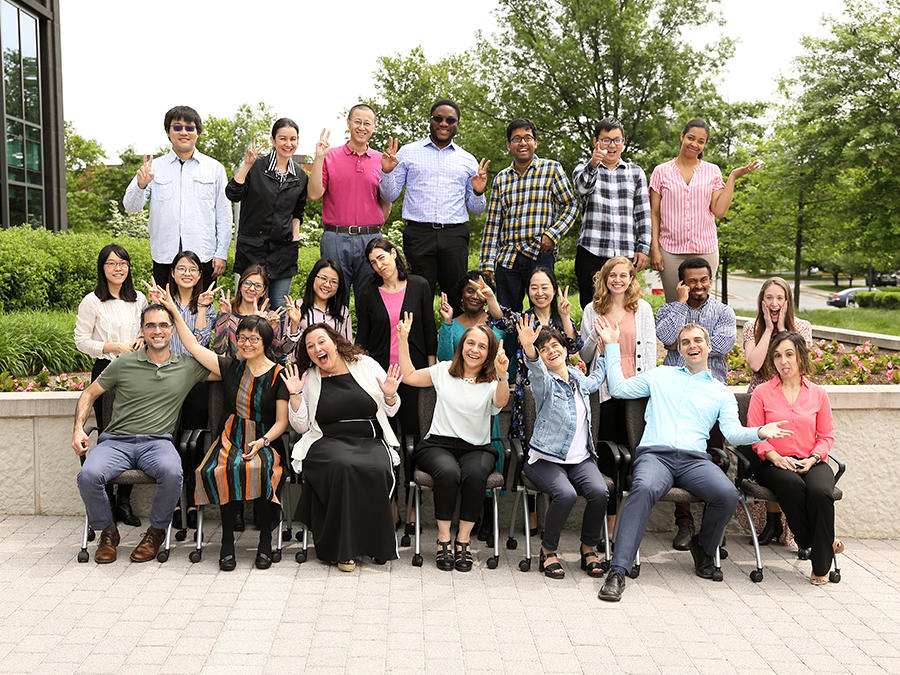Mentorship at DCEG: A Tradition of Excellence, ITEB
, by Justine E. Yu, Ph.D.
This is the second installment of the Mentorship at DCEG: A Tradition of Excellence series.
Integrative Tumor Epidemiology Branch: Gretchen Gierach, Brittny Davis Lynn, and Mustapha Abubakar
Gretchen Gierach, Ph.D., M.P.H., started in DCEG as a postdoctoral fellow. Today, as the Chief of the Integrative Tumor Epidemiology Branch (ITEB), Dr. Gierach attributes her success to the great mentorship she received throughout her career. “My mentors taught me the importance of maintaining a healthy work-life balance—finding happiness in your career is just as important as finding it outside of work. As a mentor, I try to take the time to get to know a fellow as a whole and beyond the scientific aspects of their life. By learning what a fellow values, I can help leverage their individual strengths to grow their expertise and skillset—I encourage fellows to work on projects they are passionate about and to step out of their comfort zones.”
The Mentee Experience
Former independent research scholar Brittny Davis Lynn, Ph.D., M.P.H., and current research fellow Mustapha Abubakar, M.D., Ph.D., both benefited from Dr. Gierach’s mentorship. After earning her doctorate in chemistry at the University of Maryland Baltimore County, Dr. Davis Lynn transitioned from investigating hepatitis C to postdoctoral work on population health. “I was interested in breast cancer health disparities, which at the time was an unexplored topic by investigators in the Division, and Gretchen was supportive and had a lot of ideas on how to pursue that track,” said Dr. Davis Lynn.
It’s important for a mentor to be more than just a mentor—someone who will also be your champion and sponsor—Gretchen filled many of those roles and made me a better epidemiologist.
Similarly, Dr. Abubakar was interested in building a career in molecular epidemiology and felt the mission of ITEB, which is to study cancer etiology and progression through integrative analyses of risk factors and tissue profiling to inform prevention and clinical strategies, aligned with his training goals. “I wanted to work in an environment where mentorship was prioritized and where I could integrate computational pathology and epidemiology in multiethnic breast tumor biology studies.” While Dr. Gierach serves as his primary mentor, he also receives regular guidance from Montserrat García-Closas, M.D., Dr.P.H., Deputy Director, and Rose Yang, Ph.D., M.P.H., senior investigator in ITEB. “My mentors encouraged me to take the lead on projects and helped me expand my networks and build intramural and extramural collaborations,” said Dr. Abubakar.
My mentors encouraged me to take the lead on projects and helped me expand my networks and build intramural and extramural collaborations.
Training the Next Generation of Scientists
With regard to her training philosophy, Dr. Gierach said, “I think it’s important to teach the next generation of epidemiologists how to take a study from design phase to implementation. Giving fellows the opportunity to conduct field studies teaches them essential skills and helps them grow into independent investigators.” To highlight the importance of integrating field work in the training experience, the Division recently instated the DCEG Distinguished Scientific Service Award which recognizes a fellow, staff scientist, or staff clinician who has made significant contributions to facilitating research and creating or managing resources.
“In addition to growing my knowledge and expertise, Gretchen has taught me skills in leadership and teamwork, and providing honest feedback. She encourages me to take full advantage of training and career growth opportunities offered by DCEG and the NIH,” said Dr. Abubakar. This encouragement led Dr. Abubakar to develop an independent research project which was recognized with an NCI Intramural Research Award.
I encourage fellows to work on projects they are passionate about and to step out of their comfort zones.
Now an epidemiologist at the U.S. Food and Drug Administration, Dr. Davis Lynn reflected, “Gretchen taught me how to communicate effectively and how to keep things moving. Early on as a fellow, it was hard for me to let things go until I thought it was completely ready, but she helped me realize that no one is expecting perfection. It’s important for a mentor to be more than just a mentor—someone who will also be your champion and sponsor—Gretchen filled many of those roles and made me a better epidemiologist.”


